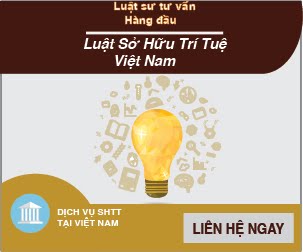Amendments to and abrogation of certain articles of the Government’s Decree No. 195/2013/ND-CP dated November 21, 2013 on elaboration and implementation of the Law on publishing
1. Clause 1 Article 7 is amended as follows:
a) Point a Clause 1 is amended as follows:
“a) The application for the license for
establishment of representative office shall be made in Vietnamese (if a foreign language document is submitted, it must be translated into Vietnamese and legally notarized) and submitted to the Ministry of Information and Communications. The application includes: The application form for the license; the written certification granted by a foreign competent authority certifying that the publishing house or the publication distribution company (the applicant) lawfully operates in the country where its head office is located; the certified copies or the copies presented with their originals for verification purpose of bachelor’s degree or academic qualifications of higher level, the criminal record and the family register or documents proving the lawful residence in Vietnam of the head of the representative office, issued by competent authorities of Vietnam;"
b) Point b Clause 1 is amended as follows:
“b) Within 20 business days from the receipt of a complete application, the Ministry of Information and Communications shall issue the license for establishment of the representative office to the applicant; in case of refusal, a written response in which reasons for such refusal are indicated must be given to the applicant.
If an application submitted through the Internet or postal service is incomplete or contains incorrect forms of documents, within 03 business days from the receipt of the application, the Ministry of Information and Communications (the Agency of Publication, Print and Release) shall inform and instruct the applicant to modify the application either by telephone, email or fax.
A license for establishment of representative office is valid for 05 years from the date of issue and may be extended provided that each extension shall not exceed 05 years.”
2. Point c Clause 2 Article 7 is amended as follows:
“c) Within 07 business days from the receipt of a complete application, the Ministry of Information and Communications shall re-issue or
extend the license for establishment of the representative office; in case of refusal to re-issue or extend the license, a written response in which reasons for such refusal are indicated must be given to the applicant.”
3. Point a Clause 1 Article 8 is amended as follows:
“a) It must have a head office of adequate area meeting relevant regulations on standards of working offices;”
4. Clause 1 Article 9 is amended as follows:
a) Point a Clause 1 is amended as follows:
“a) Before appointing the general director (or director) or the editor-in-chief of a publishing house, the agency in charge of managing such publishing house must submit an application for approval from the Ministry of Information and Communications. The application includes: The application form for approval of the personnel appointment; the resume of the to-be-appointed person; the certified copy or the copy presented with its original for verification purpose of the bachelor’s degree or higher of the to-be-appointed person;”
b) Point c Clause 1 is amended as follows:
“c) Within 15 business days from the receipt of a complete application, the Ministry of Information and Communications shall give or refuse to give a written approval for the appointment, dismissal or discharge of the general director (or director) or the editor-in-chief of a publishing house.”
5. Point b Clause 2 Article 13 is amended as follows:
“b) With respect to documents proving production space: The certified copy or the copy presented with its original for verification purpose of the certificate of land use rights or the contract or any documents proving the land allocation or lease of land, premises or workshop."
6. Clause 2 and Clause 3 Article 14 are amended as follows:
a) Point b Clause 2 is amended as follows:
“b) Within 20 business days from the receipt of a complete application, the Ministry of Information and Communications shall issue the license to import publications to the applicant; in case of refusal, a written response in which reasons for such refusal are indicated must be given to the applicant.”
b) Point b Clause 3 is amended as follows:
“b) Within 07 business days from the receipt of a complete application, the Ministry of Information and Communications shall re-issue the license to import publications to the applicant; in case of refusal to re-issue the license, a written response in which reasons for such refusal are indicated must be given to the applicant.”
7. Article 17 is amended as follows:
a) Point a Clause 1 is amended as follows:
“a) It must have a server located in Vietnam;”
b) Clause 2 is amended as follows:
“2. Requirements regarding technicians in charge of operating and managing the publishing and distribution of e-publications are laid down in Point a Clause 1 and Point a Clause 2 Article 45 of the Law on publishing. To be specific:
They must complete training courses in Information Technology.”
c) Point b Clause 3 is amended as follows:
“b) Technical measures must be adopted to prevent unauthorized access via the Internet;”
8. Point b Clause 2 Article 18 is amended as follows:
“b) Within 15 business days from the receipt of the documentation of registration of e-publication publishing or distribution, the Ministry of Information and Communications shall examine the implementation of the Scheme and give a written certification of registration of e-publication publishing or distribution to the applicant; in case of refusal, a written response in which reasons for refusal are indicated must be given to the applicant;”
9. The following regulations of the Government’s Decree No. 195/2013/ND-CP dated November 21, 2013 on elaboration and implementation of the Law on publishing shall be abrogated:
a) Point c Clause 1 Article 6;
b) Clause 3 Article 8;
c) Points b, c, e Clause 1 Article 17;
d) Point a Clause 3 Article 17;
dd) Clause 5 Article 17.
Source: Thuvienphapluatvn
































